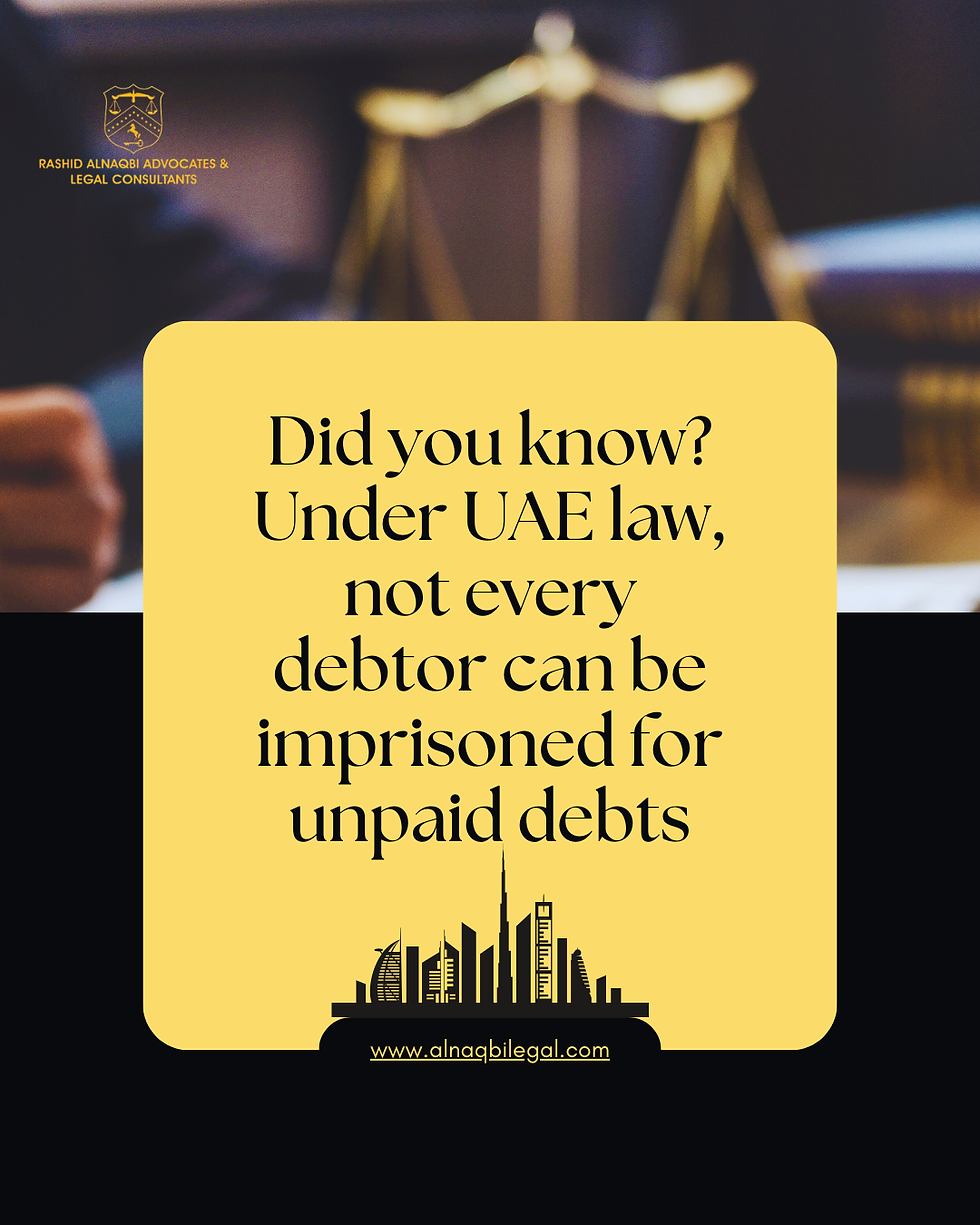UAE Civil Procedure Law on Debt Enforcement and Debtor Rights
- abdelrahman abobakr
- 5 days ago
- 2 min read

Debt enforcement is a critical aspect of civil law in the United Arab Emirates (UAE). Creditors often face difficulties when debtors deliberately avoid payment despite having enforceable judgments or instruments against them. To address this issue, Article 319 of Federal Decree Law No. 42 of 2022 (UAE Civil Procedure Code) sets out clear rules on when and how a debtor can be imprisoned for non-execution. This provision provides a strong legal remedy for creditors while ensuring fairness and protection for debtors.
Under Article 319, the execution judge has the authority to order the imprisonment of a debtor who refuses to comply with an enforceable judgment or other legal instrument. However, imprisonment is not automatic — the debtor may avoid detention if they can prove genuine inability to pay. Importantly, a debtor is not considered incapable if their assets consist only of property that cannot legally be seized or sold under UAE law.
The law prevents abuse of this defense by specifying situations where a debtor cannot claim inability to pay:
Asset Concealment or Fraud: If the debtor hides, transfers, or dissipates assets with the intent to harm creditors and obstruct enforcement.
Installment or Guarantee Obligations: If the debtor defaults on agreed installments or acts as a guarantor for another debtor, unless new and unforeseen circumstances have genuinely impacted their financial position after the obligation was created.
To maintain balance between creditor’s rights and debtor protection, Article 319 sets strict rules on imprisonment:
Initial imprisonment: up to one month, renewable.
For debtors with stable UAE residence and no flight risk: imprisonment cannot exceed six consecutive months.
Re-imprisonment is allowed after 90 days if the debtor continues to refuse payment.
The total period of imprisonment, regardless of multiple debts or creditors, must not exceed 36 months.
Debtor imprisonment in the UAE is a coercive enforcement measure, not a criminal punishment. The goal is to pressure debtors into fulfilling their obligations, not to punish them indefinitely. By setting maximum limits, the UAE Civil Procedure Law ensures that enforcement remains effective while protecting debtors from excessive or unjust imprisonment.
Conclusion
Article 319 of the UAE Civil Procedure Code is a cornerstone of debt enforcement in the UAE. It empowers creditors to secure their rights while maintaining a fair balance with debtor protections. This framework reinforces the UAE’s reputation as a jurisdiction that values both commercial certainty and justice, making it a reliable legal environment for businesses and individuals alike.




Comments